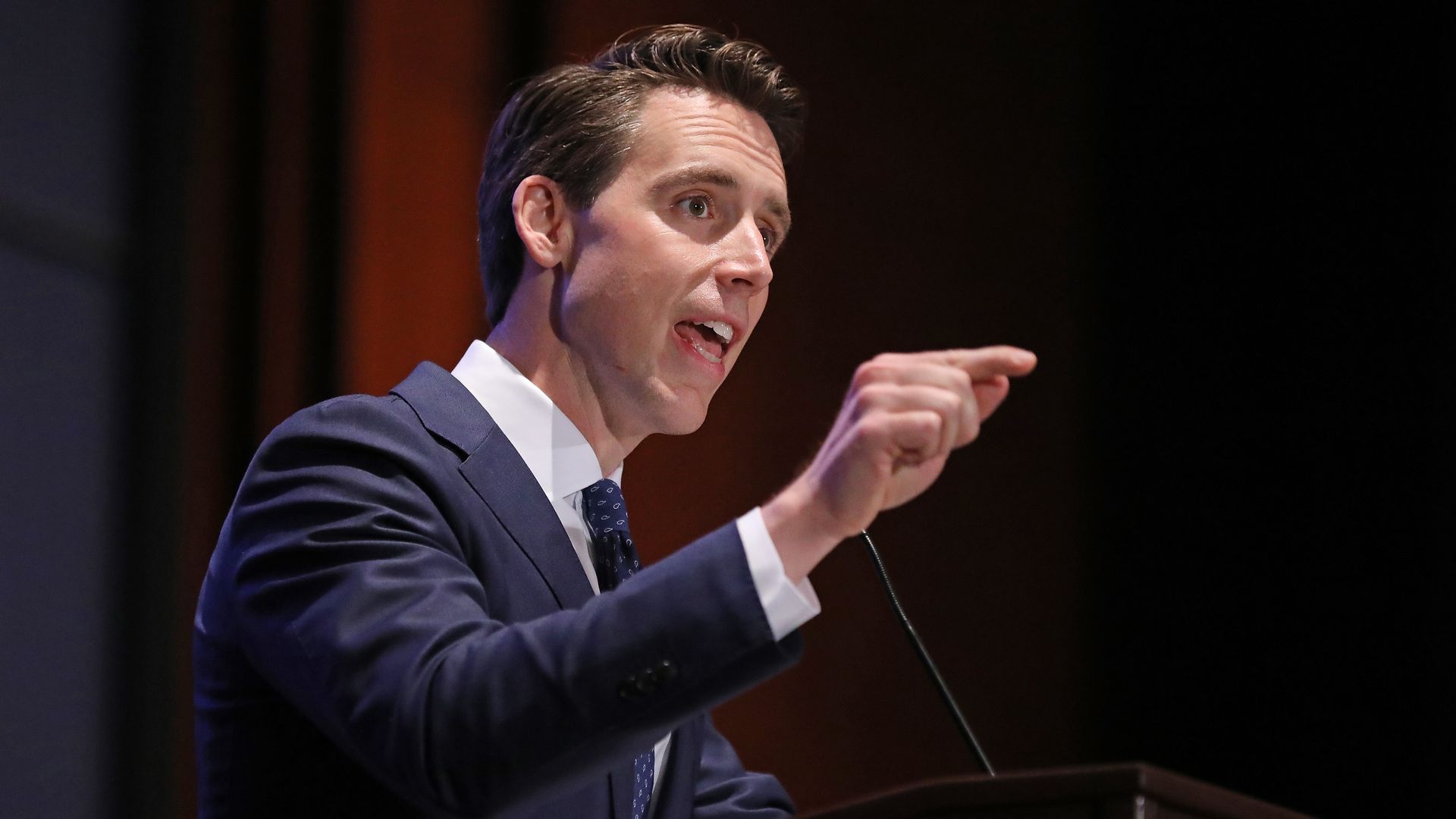Hawley bill targets Apple and TikTok ties to China
Add Axios as your preferred source to
see more of our stories on Google.

Josh Hawley. Photo: Chip Somodevilla/Getty Images.
Republican Sen. Josh Hawley, a prominent big tech critic, will introduce legislation Monday meant to protect Americans' online data from flowing to China and other countries that raise national security concerns.
How it works: Hawley's bill takes aim Apple and TikTok by prohibiting American companies from storing user data or encryption keys in China, and preventing Chinese companies from collecting more information on American users than necessary to provide service here.
The big picture: Hawley's introduction of the National Security and Personal Data Protection Act follows his repeatedly raising concerns about TikTok's and Apple's connections to China, including at a hearing this month before the Senate Judiciary crime and terrorism subcommittee.
- The proposal comes as the Trump administration continues to fight a tariff war with China while trying to negotiate a trade deal, and members of both parties in Congress are turning up the heat on American tech companies for violations of privacy, accusations of political bias, and monopolistic behavior.
Details: For TikTok, owned by Beijing-based ByteDance, the bill bans the transfer of user data to China, and curbs both the collection of data and what can be done with the information.
- TikTok, which has passed Facebook in popularity among younger teens, has said it stores U.S. users' data in the U.S., with its data centers located outside of China.
- But Hawley fears the company could be pressed by the Chinese government to turn over Americans' user data. "If your child uses TikTok, there's a chance the Chinese Communist Party knows where they are, what they look like, what their voices sound like, and what they’re watching," Hawley said in a statement.
On the Apple front, the legislation would prevent American companies from transferring user data or encryption keys to China, as well as prohibiting them from storing data in China.
- China enacted laws requiring cloud services offered to its citizens be operated by Chinese companies and that Chinese customers' data be stored in the country, forcing Apple to choose between discontinuing iCloud service there or adjusting its operations.
- Apple chose to partner with a state-owned company, Guizhou-Cloud Big Data Industry Co. Ltd., for its data center for Chinese users, but has said that Apple alone controls the encryption keys.
- "Chinese law allows the Communist Party to seize data from American companies operating in China whenever it wants, for whatever reason it wants," Hawley said.
In addition to China, the legislation also names Russia as a "country of concern" the bill would apply to and seeks recommendations from the Secretary of State for other countries that pose threats to data protection and privacy.
- Hawley also seeks changes to merger rules so attempts by Chinese companies to buy U.S. firms with troves of data would need pre-approval from the Committee on Foreign Investment in the United States (CFIUS).
- CFIUS reportedly opened a national security investigation into TikTok parent company ByteDance's two-year-old acquisition of U.S. social media app Musical.ly.
